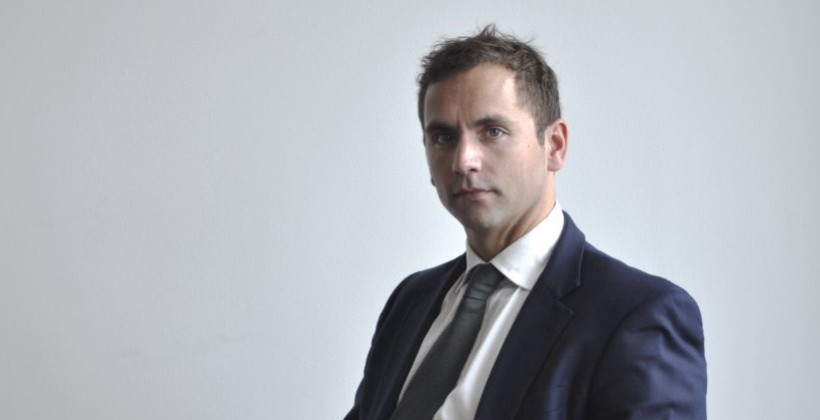The next year or so looks promising for traditional TV broadcasters, with industry forecasts predicting continued fast growth in TV ad revenues. But this optimism isn’t being reflected in UK broadcaster ITV’s share price, or at least not to the same extent as it is for other European broadcasters.
In his monthly column for VideoWeek, Ian Whittaker looks at how investors’ own misconceptions about the nation’s media habits might be stifling enthusiasm in the UK’s biggest commercial channel.
GroupM updated their forecasts for the UK advertising market last week and now expect a whopping 30 percent growth for the entire market in 2021, up from the not exactly low previous forecast of 24 percent. Delving down into the different media channels, one of the more striking changes was that for television advertising, which Group M now expects to show 19 percent growth in 2021E vs previous expectations of 13 percent and a growth rate not that much below that of online search, which is forecast to grow 21 percent in 2021E.
Personally, I think that 19 percent growth rate is still far too conservative. It is likely that the TV advertising market year to date to the end of Q3 has grown at least 25 percent and possibly more, which would imply Q4 would have to be around flat to get to Group M’s 2021 growth rate, which does not feel right. Yes, the TV advertising market started to recover in Q4 2020. But given both the current momentum and macro trends that should support advertising (the rise of inflation, sector disruption etc), it is hard to imagine there will be a slowdown in growth any time soon. But even if the 19 percent growth rate is correct, that is still nearly double Group M’s December 2020 forecast of 10 percent growth.
What is harder to explain, given these increases, is why the share price of ITV, the main UK TV commercial channel, has barely budged since the start of the year, with the shares only up two percent in the year to date. What is even harder to fathom, given earnings upgrades (the old rule of thumb for ITV is that a 1 percent increase in TV Advertising growth would have a c. 2 percent impact on adjusted Earnings Per Share (EPS)), is that its’ Price / Earnings ratio – which reflects investors’ views of the company, with a higher number reflecting a more attractive investor view of growth potential – has gone backwards as the year has progressed. It now stands at 8.5x current year’s multiples, far lower than the 19.3x for the FTSE 100 index according to Bloomberg.
Why is this the case? There are a few mitigating factors. ITV’s share price had recovered strongly in 2H last year (as global equities did) and, on a 12 month view, the shares are up well over 55 percent at time of writing. September has not been great for global equities anyway given the political impasse in the United States and growing fears globally over inflation and the resilience of supply chains. Moreover, the ITV share price performance does not look too dissimilar from its US peers with Disney actually down Year to Date (YTD), ViacomCBS up 7 percent and Comcast up 9 percent.
However, even with all these caveats, ITV’s share price performance looks unusual, especially as current analyst forecasts are unlikely to reflect the true strength of Q3 (analysts are not always up to date on forecasts, especially with an increasing workload). It is also unusual because the share prices of other European broadcasters have been doing well generally. ProSieben is up 16 percent YTD, Mediaset up 19 percent, TF1 up 28 percent and RTL up a whopping 74 percent. For the latter two in particular, much of this reflects merger activity (TF1 and RTL-controlled M6 announced their merger earlier this year, as did RTL’s Netherlands TV business with main commercial rival Talpa) but the stocks have also benefited from improved investor sentiment over their prospects. Yet this has not happened with ITV.
My guess is that ITV’s problem with investors comes down to the false consensus effect, namely that investors think their own media habits are consistent throughout the general population. The single biggest argument I heard from investors, particularly UK ones, against owning ITV shares can be summed up as “I watch Netflix, my kids are on their iPads, no-one watches live TV any more” as if that sums up the general population (my personal favourite was “I know ITV is dead because when I am flying business class every weekend to X, I only watch Netflix”).
Ask a group of investors how many have watched “Game of Thrones” (or, for the show du jour “Squid Game”) and a sea of hands are likely to be raised. Ask them how many watch Coronation Street and you will be lucky to get two or three who watch the show. Yet, the latter is more akin to ordinary consumers’ viewing than the former.
Will this attitude change? One of the theories why TV advertising has bounced back more strongly than expected is that the pandemic has brought home to advertisers and agencies that many people still see linear television as central to their viewing habits and, conversely, that Netflix has its limits as to just how much of its content people can consume. The question is whether investors reach that same conclusion when it comes to ITV. My view is they will not do so yet, but there will come a point where the evidence is just too strong to ignore. Watch this space.





